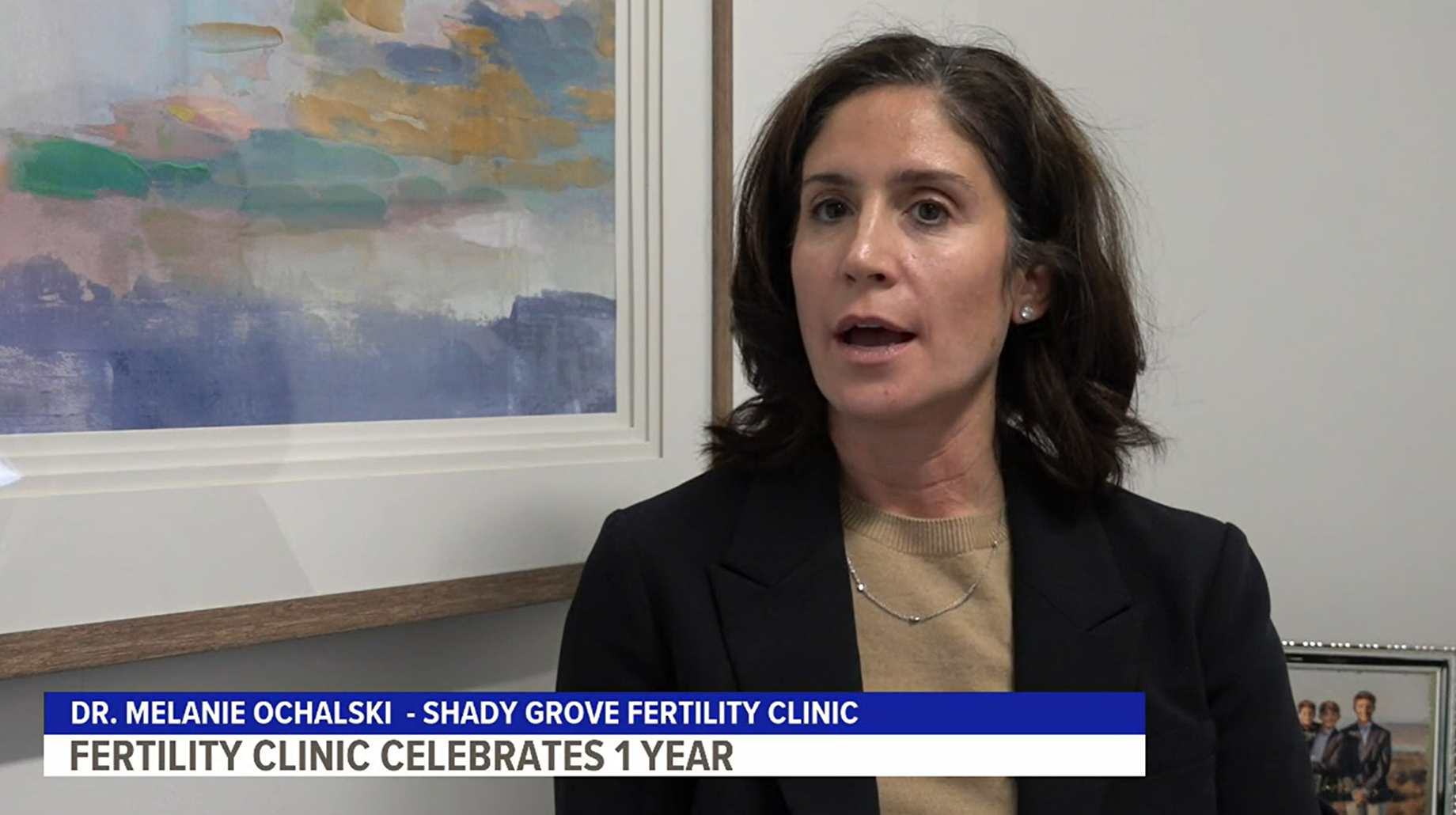Polycystic ovary syndrome (PCOS) is the most common ovulation problem in women of reproductive age, with one in 10 women diagnosed with this condition. Women with PCOS can have infrequent or absent ovulation — the body’s process of growing and releasing eggs from the ovary.
There is a lot of confusing information about this diagnosis that can lead to unwarranted fears or different ideas of what PCOS means for your health and for getting pregnant. We talked with Dr. Joseph Davis, who sees patients at SGF’s Orlando location, about trying to get pregnant when you have PCOS.
“The first step,” according to Dr. Davis, “is to understand what PCOS is and then explore what treatments will work best for you as an individual.”
Can patients with PCOS get pregnant?
Many patients with PCOS have difficulty getting pregnant on their own. Unlike women who ovulate and have a period every month, women with PCOS often don’t ovulate in a predictable fashion (or at all) and therefore may have fewer opportunities to become pregnant over their lifetime. However, there are very effective lifestyle changes, medications, and basic, low-tech treatments for PCOS that increase your chances of ovulation each cycle. In fact, of all conditions known to contribute to infertility, PCOS is one of the easiest to fix.
“Being diagnosed with PCOS does not mean that you cannot get pregnant,” shares Dr. Davis. “For many patients with PCOS, lifestyle changes, such as achieving and maintaining a healthy weight, can be enough to resume ovulation and become pregnant. Nutritional guidelines like regulating blood sugar and insulin levels, decreasing inflammatory foods, and correcting any nutrient deficiencies such as vitamin D are beneficial for patients with PCOS, too.”
What does fertility treatment look like for patients with PCOS?
At SGF, we provide personalized treatment plans for all of our patients – including those with PCOS. We take a stepped-care approach to treatment – starting with the most affordable low-tech fertility treatment options first and moving up to more advanced treatments only if needed.
When lifestyle modifications on their own are not enough to help you begin ovulating, simple fertility treatments for patients with PCOS can include oral medications (ie. pills) to help with ovulation such as clomiphene citrate (Clomid, Serophene) and letrozole (Femara).
If a patient has not become pregnant after 3-4 rounds of medicated menstrual cycles, it may be time to consider a different course of treatment such as intrauterine insemination (IUI) or in vitro fertilization (IVF).
What other health concerns are related to PCOS?
While many women come to a fertility specialist worried about their chance of getting pregnant, there are other health concerns that patients with PCOS should be aware of and address.
One of the causes of PCOS is an insensitivity to insulin, which in turn causes male-type hormone (aka androgen) excess. From there, the result is a higher likelihood of diabetes of pregnancy (gestational diabetes) and greater risk factors — such as high cholesterol — for heart disease. There is also a higher incidence of endometrial cancer in women who have gone for long periods of time without menstruating, typically more than 90 days.
Does PCOS affect your weight?
There is a common misconception that all women with PCOS are overweight. In some cases, insulin resistance can be associated with obesity, but there are many patients with PCOS that are not overweight. Still, the impact of weight on PCOS and related infertility is undeniable. Being overweight increases the severity of insulin resistance and further drives the process.
“Studies have shown that even weight loss of only five percent can actually lower androgen levels by significant levels,” shares Dr. Davis. “In some cases, even modest weight loss can significantly help bring on regular menstrual cycles.”
I have PCOS, when should I reach out to a fertility specialist?
If you’ve been diagnosed with or believe you may have PCOS, you should seek help from a fertility specialist when you are ready to start trying to conceive.
“If you have an irregular period, there is no reason to delay seeking treatment based on age guidelines,’ shares Dr. Davis. “Seeking fertility treatment sooner leads to more successful outcomes, as age is the number one factor of infertility for women.”
To learn more about an individualized treatment plan for PCOS or to schedule a new patient appointment, please call our New Patient Center at 877-971-7755.
Medical contribution by Joseph B. Davis, D.O.
Joseph B. Davis, D.O., FACOG, is board certified in obstetrics and gynecology (OB/GYN) as well as reproductive endocrinology and infertility (REI). Dr. Davis completed his residency in OB/GYN at Akron General Medical Center in Akron, Ohio. From there, he trained in REI at Albert Einstein College of Medicine in New York City.
Editor’s note: This article was originally published in May 2018 and has been updated for accuracy and comprehensiveness as of August 2023.







